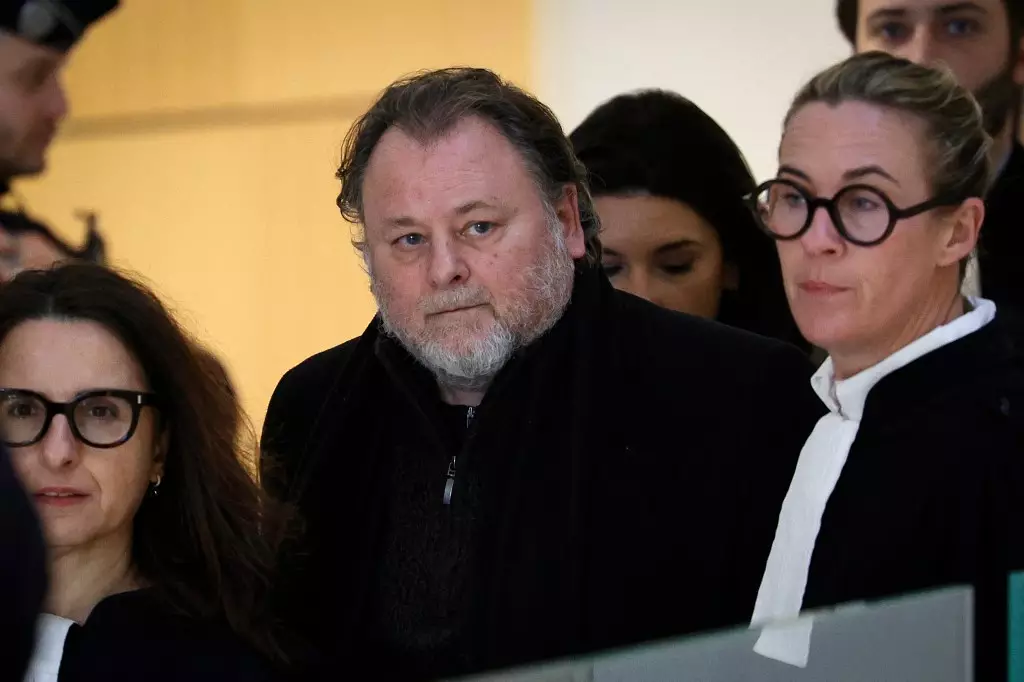In a notable moment for the #MeToo movement in France, filmmaker Christophe Ruggia has been sentenced to two years of house arrest, monitored by an electronic ankle bracelet, with an additional two years suspended. This judgment follows a high-profile trial that centered around the allegations made by actress Adèle Haenel. The Paris prosecutor’s office had sought a harsher penalty of five years in prison, but ultimately, the court settled on a more lenient sentence. The case, which had been unfolding for years, marks a significant milestone not only in Haenel’s personal journey but also in the larger discourse about sexual harassment and accountability within the film industry.
Haenel’s public revelations in 2019 were groundbreaking; they shed light on a pervasive issue that had quietly tainted the landscape of French cinema for too long. She accused Ruggia of sexually assaulting her over a span of three years, starting from when she was just 12 years old during the filming of “The Devils.” These allegations were particularly poignant not only for their content but also for their historical context—this was a time when speaking out against such behavior was exceedingly rare in France.
The trial itself, held over two tumultuous days, received extensive media coverage, reflecting the intensity of the debates surrounding sexual violence and the responsibilities of institutions to protect vulnerable individuals. During Ruggia’s testimony, he suggested that Haenel’s accusations stemmed from a form of revenge, claiming a lack of collaboration on future projects was the motivation behind her allegations. Haenel vehemently rejected this characterization, and the courtroom erupted in tension when she passionately demanded Ruggia to “Shut your mouth!” before leaving in protest.
This scene underscores the emotional gravity of the situation, illustrating just how deeply personal and public these trials can become for the parties involved. Each confrontation within such trials emboldens or discredits the claims of the victim, revealing the fine line that exists between perception and reality in matters of sexual assault. Particularly in cases involving public figures, the outcomes resonate far beyond the courtroom, influencing societal conversations about trauma, judiciousness, and the role of the arts.
The outcome of Ruggia’s trial resonates with a broader cultural context surrounding issues of sexual violence in France, especially in the wake of the #MeToo movement. Haenel’s decision to come forward was met with a wave of criticism and indifference within the local film industry, which had not yet fully addressed these concerns. A striking example of this was the Césars Awards ceremony just a few weeks after her revelations, where Roman Polanski was awarded Best Director despite his well-documented legal troubles. This was seen as a direct insult to Haenel and all survivors of sexual violence—an indication that the wheel of change was still moving slowly.
In the years following Haenel’s courage to speak out, public sentiment gradually shifted, catalyzed by other high-profile accusations like those made by actress Judith Godrèche against directors Benoît Jacquot and Jacques Doillon. These newer allegations helped to stoke the embers of a #MeToo resurgence in France, steadily altering the industry’s landscape and increasing urgency for accountability and reform.
The changes within the César Academy’s rules to disqualify nominees under investigation for sexual violence illustrate a shift towards greater awareness and protection for victims. Although the road to comprehensive change is still fraught with challenges, newly enacted policies signal that the film industry is beginning to confront harassment more adequately.
Haenel’s eventual decision to exit the industry, citing its “general complacency,” serves as both a critique and a call to action for those remaining within the field. Her departure marks a courageous stance against systemic issues, inspiring other victims and advocates to continue pushing for a culture of accountability.
The case of Christophe Ruggia may represent a pivotal moment in France’s struggle against sexual violence within the film industry. As society grapples with deep-seated issues of power and violation, the bravery of individuals like Adèle Haenel has illuminated the path toward a more equitable future, setting a new standard for both artistic integrity and personal safety.
